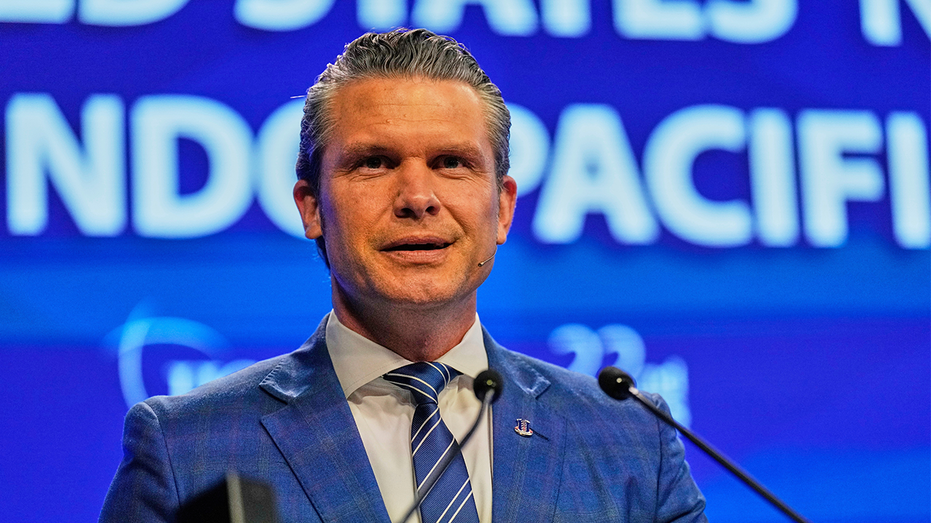Hegseth Announces Commitment to Strengthen US Military Presence Abroad to Support Indo-Pacific Allies Against China
Defense Secretary Hegseth affirms U.S. support for Indo-Pacific allies amid China's rising military strength.

Defense Secretary Pete Hegseth delivered a firm message to U.S. allies across the Indo-Pacific on Saturday, emphasizing that American support remains strong in the face of escalating military and economic assertiveness from China. Speaking at a major security conference in Singapore, Hegseth warned that while the United States is committed to bolstering defenses abroad, allied nations must also step up their own military investments and readiness if they hope to deter potential aggression from Beijing.
Highlighting what he described as rapidly developing threats, Hegseth drew special attention to Taiwan, which has faced growing pressure from China. The Chinese military has intensified exercises around the island, simulating blockades and rehearsing operations that raise alarms about a potential invasion. "The threat China poses is real," Hegseth declared. "And it could be imminent." His remarks echoed concerns within the Pentagon that China's ambitions in the region are matched by an increasingly sophisticated military posture.
China has publicized its aim to have the capability to seize Taiwan by force by 2027. According to Hegseth, Beijing is no longer simply expanding its forces; instead, it is actively training for large-scale operations—daily. This acceleration, he argued, underscores the need for the U.S. and its allies to adapt quickly and invest in both traditional and emerging defense capabilities.
Beyond the Taiwan Strait, Hegseth highlighted China’s broader activities in the South China Sea, including the construction of man-made islands designed to serve as new military outposts. He also noted China's advances in hypersonic missile technology and space-based capabilities, developments that have prompted the United States to work on innovative defensive measures such as the so-called Golden Dome project. Hegseth pushed back against suggestions that the Golden Dome was offensive in nature, stating emphatically that it is about "protecting the homeland."
In a notable moment during his speech, Hegseth called out Chinese attempts to expand geopolitical influence far beyond Asia, singling out increased activities around the strategic Panama Canal in Latin America. He used this as an example of why Indo-Pacific and global partners cannot afford to be complacent.
The Defense Secretary also used the high-profile platform to urge regional governments to increase their defense budgets, pressing them to match the levels of spending that many European countries are now being asked to achieve as a percentage of their gross domestic product. "We must all do our part," he insisted, underlining the notion that collective security requires equitable burden-sharing among allies.
However, Hegseth's calls for increased contributions sparked a measured rebuttal from the European Union’s top diplomat, Kaja Kallas, who took issue with his implication that Europe should primarily focus on its own continent while the United States shoulders most of the Indo-Pacific security burden. Kallas asserted that European and Asian security are "very much interlinked," citing the involvement of North Korean troops in the conflict in Ukraine and China’s ongoing support for Moscow as evidence of the interconnected nature of modern threats.
As regional tensions continue to simmer and alliances are tested, the messages exchanged at the Singapore conference signal that the strategic calculus in the Indo-Pacific—and globally—is evolving rapidly. Calls for unity and shared responsibility will likely continue to grow louder in the face of persistent challenges from China and its partners.




